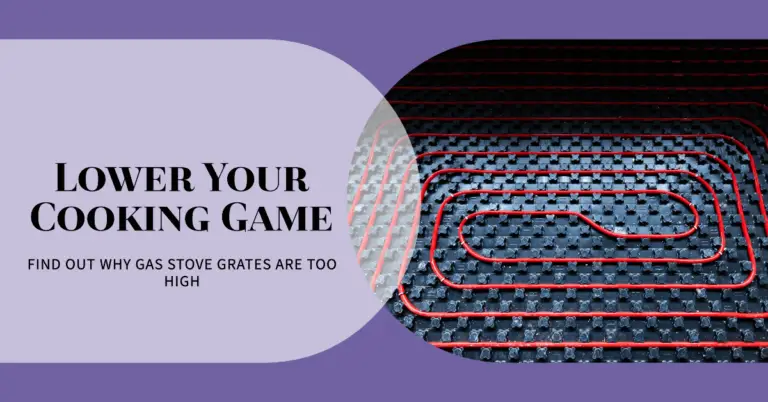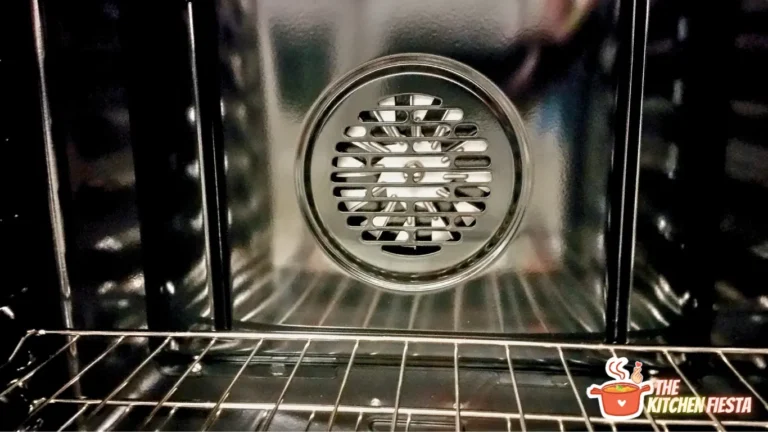Are Natural Gas and Propane Interchangeable? A Clear Answer

Natural gas and propane are two of the most commonly used fuels for heating, cooking, and powering various appliances in homes and businesses.
However, many people wonder if these two gases are interchangeable. The answer is no, natural gas and propane are not interchangeable.
While natural gas and propane are clean-burning, colorless, and odorless, they have different chemical compositions and energy efficiencies. A gas stove designed for natural gas can only be used with natural gas and vice versa. However, some companies include conversion kits with their stoves, allowing easy conversion to use either fuel.
This article will explore the question of whether or not natural gas and propane can be used interchangeably and provide a clear answer based on the available information.
Understanding Natural Gas and Propane
Natural Gas: A Brief Overview
Natural gas is a fossil fuel that is composed mainly of methane. It is typically extracted from underground reservoirs and transported via pipelines to homes and businesses. Natural gas is odorless, colorless, and lighter than air. It is often used for heating and cooking.
One of the main advantages of natural gas is its cost-effectiveness. It is generally cheaper than other fuels, such as electricity or oil. Natural gas is also a clean-burning fuel, producing fewer emissions than other fossil fuels.
However, there are some disadvantages to using natural gas. For example, it is a non-renewable resource that will eventually run out. Additionally, natural gas pipelines can sometimes leak, leading to safety concerns.
Propane: A Brief Overview
Propane, or liquefied petroleum gas (LPG), is a byproduct of natural gas processing and crude oil refining. It is stored in pressurized tanks and transported to homes and businesses for heating, cooking, and other applications.
One of the main advantages of propane is its versatility. It can be used for various applications, including heating, cooking, and powering vehicles. Propane is also a clean-burning fuel, producing fewer emissions than other fossil fuels.
However, there are some disadvantages to using propane. For example, it is more expensive than natural gas. Additionally, propane tanks can sometimes leak, leading to safety concerns.
Interchangeability of Natural Gas and Propane
Natural gas and propane are the most common fuels used in households and businesses. While they share some similarities, they are not interchangeable. This section will explore natural gas and propane differences regarding their chemical composition, energy efficiency, safety, and usage.
1. Chemical Composition
The chemical composition of natural gas and propane is different. Natural gas primarily comprises methane, while propane is a hydrocarbon comprising propane and butane. This difference in composition affects the properties of the gases, including their combustion characteristics and fuel pressures. Therefore, natural gas appliances can only be used with propane, and vice versa, with proper conversion.
2. Energy Efficiency
The energy efficiency of natural gas and propane is also different. Propane has a higher energy content per unit volume than natural gas, meaning it can produce more heat per unit of fuel. However, natural gas is generally cheaper than propane, so using natural gas appliances in areas where natural gas is readily available may be more cost-effective.
3. Safety
Both natural gas and propane are combustible gases, and safety is a crucial consideration when using either fuel. Natural gas is lighter than air and will rise if there is a gas leak, while propane is heavier than air and will sink. Therefore, different safety measures are required for each fuel. Natural gas is typically delivered through pipelines, while propane is stored in tanks. The storage and transportation of propane require additional safety precautions.
4. Usage
The usage of natural gas and propane appliances differs due to their differences in combustion characteristics and fuel pressures. As mentioned, natural gas appliances
cannot be used with propane without proper conversion. Similarly, propane appliances cannot be used with natural gas without proper conversion. Therefore, it is essential to ensure that the correct fuel is used with the appropriate appliance to prevent accidents and ensure optimal performance.
Conversion Between Natural Gas and Propane
Regarding fueling stoves, natural gas, and propane are two of the most popular options. While they may seem interchangeable, they are not. However, it is possible to convert appliances from one gas type to another. Here are some ways to do so:
Conversion Kits
Many stove manufacturers offer conversion kits that allow you to switch from natural gas to propane or vice versa. These kits typically include new orifices, regulators, and other necessary parts. It is important to note that not all appliances can be converted, so be sure to check with the manufacturer before purchasing a conversion kit.
The conversion process itself can be relatively simple, but it is important to follow the instructions carefully. Failure to do so can result in a dangerous situation. If you are not comfortable doing the conversion yourself, it is best to seek professional assistance.
Professional Assistance
If you are not comfortable converting your stove yourself or cannot be converted with a kit, it is best to seek professional assistance. A licensed plumber or gas technician can safely convert your appliance. They will have the necessary tools and expertise to ensure the conversion is done correctly.
It is important to note that converting an appliance from natural gas to propane (or vice versa) is not a DIY project. Attempting to do so with the proper knowledge and experience can result in a safe situation. Always seek professional assistance if you need help with how to proceed.
Advantages and Disadvantages
Benefits of Natural Gas
- Natural gas is a cleaner burning fuel than propane, producing fewer emissions and pollutants.
- It is also less expensive than propane and can be found in most urban areas, making it easily accessible for many households.
- Natural gas is also considered a safer fuel than propane, as it is lighter than air and disperses quickly in case of a leak.
Drawbacks of Natural Gas
- Natural gas is not as efficient as propane in energy output, so it may take longer to heat up your home or appliances.
- It is also not as readily available in rural areas, which may limit its accessibility for some households.
- Natural gas pipelines can also be vulnerable to leaks or damage, which can create safety hazards and environmental concerns.
Benefits of Propane
- Propane has a higher energy content per unit of volume than natural gas, which means it is more efficient as a fuel source.
- Propane is also readily available in both urban and rural areas, making it accessible for many households.
- It is also a versatile fuel that can be used for various household appliances, including stoves, ovens, and water heaters.
Drawbacks of Propane
- Propane is more expensive than natural gas, which can make it a less attractive option for some households.
- It is also heavier than air, which can accumulate in low-lying areas and create a safety hazard in the event of a leak.
- Propane tanks also require regular maintenance and inspections to ensure safety and proper functioning.
Conclusion
In summary, natural gas and propane are not interchangeable fuels. Although they are both combustible gases and used for similar purposes, they have different combustion characteristics and require other fuel pressures.
Propane has a higher energy content per unit of volume than natural gas, making it more efficient as a fuel source. However, natural gas is typically less expensive than propane due to its greater availability and lower production costs.
When choosing between natural gas and propane, homeowners should consider their needs and circumstances. If they have access to a natural gas line and want a more cost-effective option, natural gas may be the better choice. On the other hand, if they need a more energy-efficient fuel source and are willing to pay a higher price, propane may be the way to go.
It is essential to consult with a professional to determine the best fuel source for your specific situation. They can provide valuable insights and recommendations based on factors such as your location, energy needs, and budget.
Frequently Asked Questions
Can natural gas appliances be converted to propane?
Yes, natural gas appliances can be converted to propane. However, it is essential to note that not all appliances can be converted. It is best to consult the manufacturer’s instructions or a licensed professional to determine if your appliance is convertible.
How do you convert a gas stove from natural gas to propane?
You will need a conversion kit to convert a gas stove from natural gas to propane. The kit typically includes a new regulator, burner orifices, and other parts. The process of conversion varies depending on the stove model, but it typically involves replacing the existing parts with the new ones included in the kit. Following the manufacturer’s instructions or hiring a licensed professional to perform the conversion is essential.
What is the difference between natural gas and propane?
The main difference between natural gas and propane is their chemical composition. Natural gas mainly comprises methane, while propane is a hydrocarbon liquefied and stored under pressure. Propane has a higher energy content per unit of volume and is more efficient as a fuel source. Natural gas is typically less expensive than propane due to its greater availability and lower production costs.
Can you use a propane conversion kit for a natural gas appliance?
You can use a propane conversion kit for a natural gas appliance. The kit typically includes a new regulator, burner orifices, and possibly other parts. Following the manufacturer’s instructions or hiring a licensed professional to perform the conversion is essential.
How much does it cost to convert a natural gas stove to propane?
The cost to convert a natural gas stove to propane varies depending on the stove model and the cost of the conversion kit. The cost of the kit typically ranges from $50 to $100, and professional installation may cost an additional $100 to $200. It is best to consult a licensed professional for an accurate estimate.
Is it safe to use propane on a natural gas stove?
It is generally safe to use propane on a natural gas stove if the stove has been properly converted using a conversion kit. However, it is essential to follow the manufacturer’s instructions or hire a licensed professional to perform the conversion to ensure the safety and proper functioning of the appliance.






